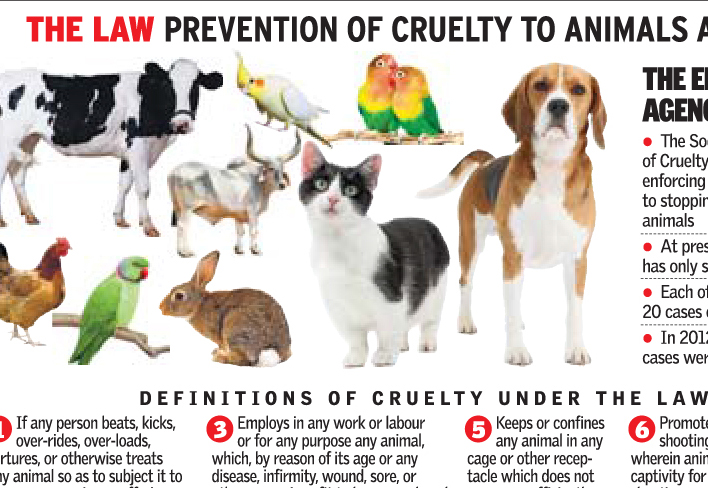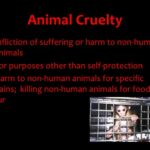Animal cruelty evokes passionate responses from animal lovers and advocates. It raises numerous questions about society’s ethics and responsibilities toward living beings. The state of Louisiana is no exception when considering the legal repercussions associated with animal cruelty. Understanding whether animal cruelty is deemed a felony in Louisiana, as well as grasping the intricacies of the cruelty laws, is essential for fostering a culture of compassion and protection for animals.
In Louisiana, animal cruelty is governed by specific statutes designed to prevent the inhumane treatment of animals. The relevant law is found in Louisiana Revised Statutes Title 14, Section 102. This statute identifies various forms of animal cruelty that can occur and categorizes them based on severity. Generally, animal cruelty encompasses acts of intentional harm, neglect, abandonment, and other forms of mistreatment that lead to unnecessary suffering or death of an animal.
One pivotal clarification arises from the state’s definitions of different tiers of animal cruelty. Under Louisiana law, there are two principal categories: “simple” animal cruelty and “aggravated” animal cruelty. Simple cruelty, as one might surmise, pertains to acts that are deemed less severe than aggravated cruelty but still recognize a significant lack of regard for animal welfare. This can include neglect cases where animals are not properly fed, sheltered, or cared for. On the other hand, aggravated cruelty is escalated in nature and involves acts of torture or intentional causing of severe injury. Such actions not only demonstrate a blatant disregard for an animal’s well-being but may also reflect broader societal issues regarding violence and empathy.
Determining whether an act qualifies as a felony hinges on these classifications. In Louisiana, aggravated animal cruelty is classified as a felony, carrying the possibility of severe penalties, including imprisonment and fines. The severity of punishment serves as a crucial deterrent, aiming to minimize the occurrence of such grave offenses. Felony charges typically entail at least one year of incarceration, along with the prospect of substantial monetary fines, depending on the circumstances of each case.
Interestingly, the perception of animal cruelty laws in Louisiana elicits a range of reactions from the public. Some view them as necessary safeguards, while others might argue that they do not go far enough to protect vulnerable animals. This dichotomy poses a troubling question about collective morality and ethical standards concerning non-human entities. The reality often reflects a deeper fascination with the conditions that breed cruelty, perhaps rooted in historical relationships between humans and animals.
Moreover, allegations of animal cruelty are not taken lightly. In many instances, law enforcement and animal control agencies work collaboratively to investigate claims of mistreatment. This cooperation can be instrumental in gathering evidence, ensuring accountability, and ultimately promoting a culture of responsible pet ownership. Engaging community stakeholders in these investigations reveals the profound interconnections between citizens and their treatment of animals.
Enforcement of animal cruelty laws in Louisiana allows for intervention in the lives of the animals at risk, but that is just part of the equation. Education plays a crucial role in preventing cruelty in the first place. By fostering awareness about animal needs, humane treatment practices, and proper care, communities can gradually dismantle the underlying patterns that lead to violence against animals. Organizations dedicated to animal welfare have increasingly taken this proactive role by establishing outreach programs aimed explicitly at educating the public.
Another salient point to consider is the overlap between animal cruelty and domestic violence. Research has indicated a concerning correlation between individuals who commit acts of cruelty against animals and those who engage in violence against humans. Recognizing this link can be invaluable in shaping comprehensive public policy, promoting cross-training for law enforcement, and developing intervention programs that address issues across species boundaries.
The nuances of animal cruelty laws in Louisiana also intersect with broader societal values. As awareness grows around animal welfare and the rights of non-human creatures, there is a burgeoning call for legislative reform. Advocates are pushing for more stringent laws, enhanced penalties, and expanded definitions of cruelty to include various forms of neglect and exploitation. This evolution in legislation reflects a shifting paradigm, one that increasingly acknowledges animals as sentient beings deserving of protection.
It is also essential to recognize that legal frameworks are only part of the battle against animal cruelty. Cultural attitudes and individual choices play pivotal roles in promoting the welfare of animals within Louisiana’s communities. Local initiatives aiming to promote spaying and neutering, responsible pet ownership, and welfare advocacy can create transformative change at the grassroots level. These efforts may indeed rally individuals together to create a more compassionate society that respects and protects all living beings.
In conclusion, animal cruelty is a serious offense in Louisiana, with significant legal implications. The distinction between simple and aggravated cruelty plays a crucial role in determining whether acts of animal mistreatment classify as felonies. However, the conversation about animal welfare does not end with legislation. Community engagement, education, and cultural awareness are vital components in dismantling the cycle of cruelty. By promoting a broader understanding of animal rights, society as a whole can strive toward a future where compassion prevails over indifference.






